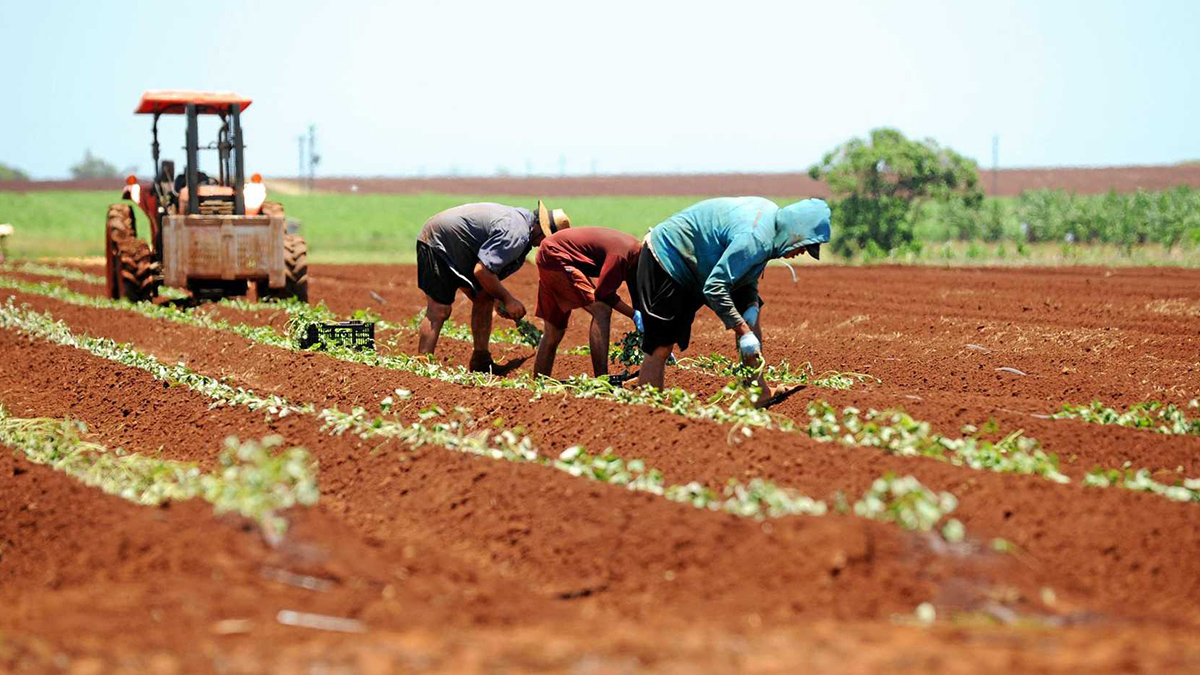Newshub’s Kate Hawkesby and Maxim Institute’s Julian Wood.
Kate:
There’s a call for a freeze on temporary work visas and an overhaul of how we… how we welcome migrants into NZ and Maxim Institute Report says we’ve got a short-sighted conveyor belt of low skilled workers and instead of debating numbers, we need to change the conversation to how we treat migrants.
Well joining us now is Maxim Institute researcher Julian Wood. Morning to you Julian, is NZ too reliant on temporary migrant visas, do you think, to fill the gaps?
Julian:
Absolutely. I think ah… we’ve seen as a solution that we developed in the 1990’s grow from around 30,000 temporary visas up to a… sort of a revolving cast of about 170,000 workers at any one time in NZ today. This, to me, is just a… sort of a lazy solution to a real problem.
Kate:
What’s your suggestion then? How do we solve it?
Julian:
Oh, we’ve come up with nine solutions, or parts of solutions. The first really is just to freeze the level of temporary work visa approvals at their current levels. This is really just to say “hey, it’s just… it’s not good enough to continue the way we are going.”
Um… this over-reliance is having an impact on productivity; it’s creating conditions for migrant work exploitation and… and it’s also meaning there’s mutual un-motivation in and by workers and firms and communities. So, really, it’s just to say “hey, we need to stop that solution.” We’re not taking it away but we’re just going to apply some pressure.
The second thing we would also do is um… is… is just ask ourselves to invest in migrants more and ask migrants to invest in us more.
Kate:
When you talk about that under investment, what do you mean? How do we be more welcoming, because I would have thought we’d be a… you know… more welcoming country than most?
Julian:
Yeah, when we talk to migrants – and when researchers talk to migrants all over the world actually – what they notice is that if someone is not expecting to live or stay in a community for more than two years, they really under invest in that community.
Similarly, we also see the community under investing in them. You know, there’s no point becoming part of a school board or, you know, taking your kids to things and being part of that community if you’re just going to leave.
Similarly, we see that a lot in Australia with these fly-in-fly-out communities – they just don’t invest in the migrants in their midst so it’s a mutual under investment and we need to really knock that on its head.
Kate:
What sort of things can we do then?
Julian:
Oh, so there’s a whole range of things that other people around the world will do to invest in or yeah, to ask migrants to invest… so like we can… we’ve already committed, for example, to history courses in education and schools. Why not have civics courses and history courses for migrants in our community that are delivered alongside those courses? We can make use of personal… personalised settlement plans that say “hey, if you’re going to be in this community, let’s make that a successful journey for you.”
We can also use formal sports programmes. That’s something that’s used really well overseas where we get um… you know, we help subsidize the cost of sports programmes for children of newcomers and get parents talking to each other on the side-lines immediately building communities. So, I mean there’s some really practical ways forward.
The other flip side of this, of course, is to ask migrants to invest in us. And part of that, we would say, is as there are pathways to permanence, we actually expect permanent people on permanent residency visas to be residents in NZ, which is something we don’t do.
Kate:
That’s all good in theory, I guess, long term, but that’s big bucks and you’re gonna get, you know, the inevitable push back from the xenophobes going “we need help… we need to help our own first.”
Julian:
Yeah, and that’s actually part of helping our own. What we are seeing with ah… with this overuse of temporary work visas, this is starting to impact local wages and conditions in… in… in the regions. Certain locations, certain industries – it is having a negative impact.
Kate:
Julian, I appreciate your time very much. Julian Wood researcher at Maxim Institute.
If you enjoyed this post please consider sharing it.

